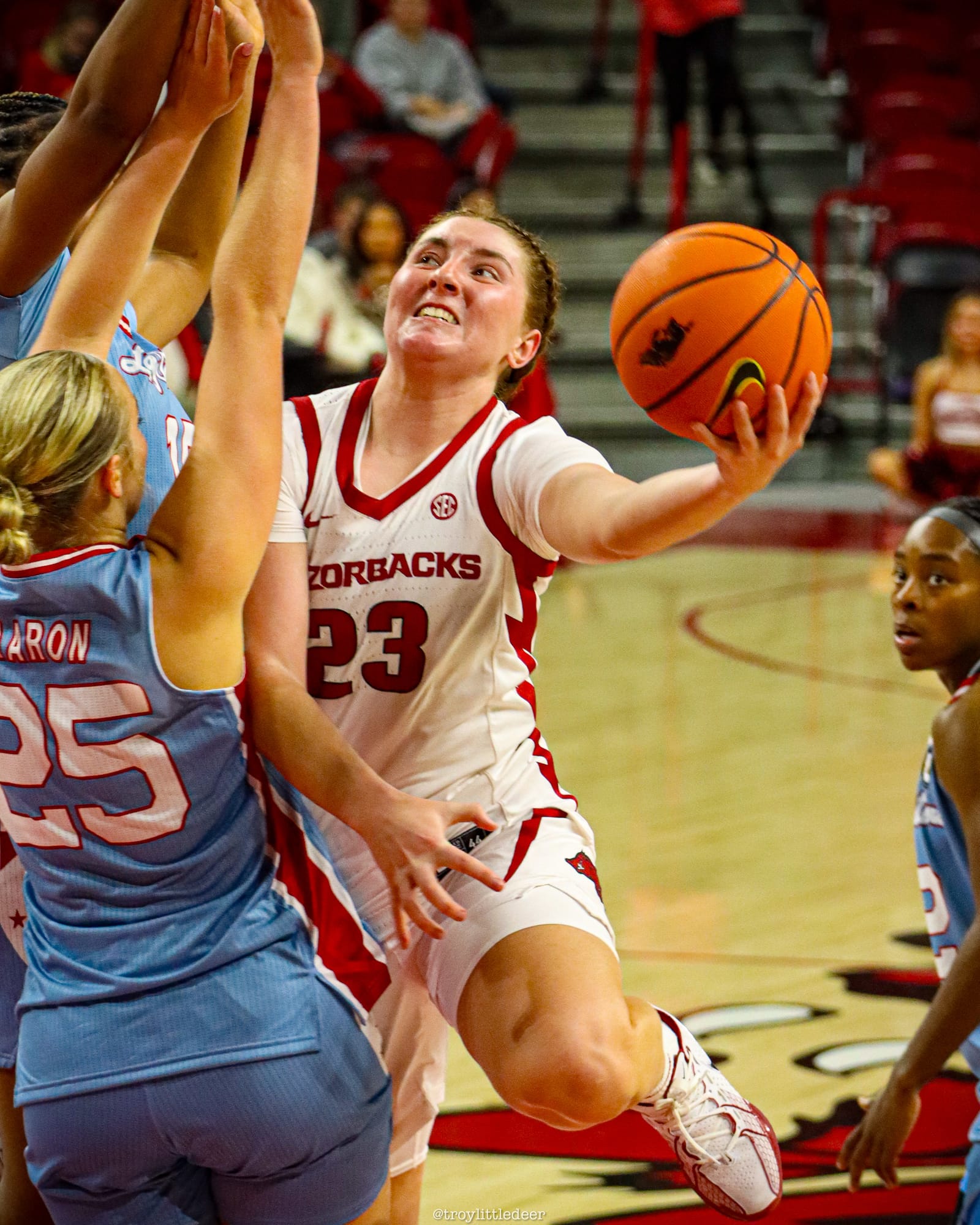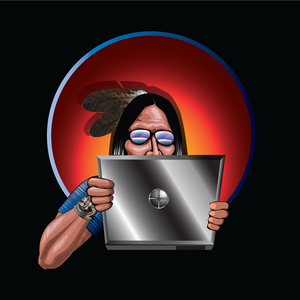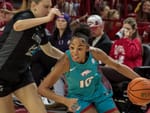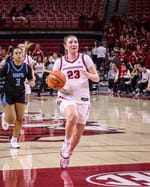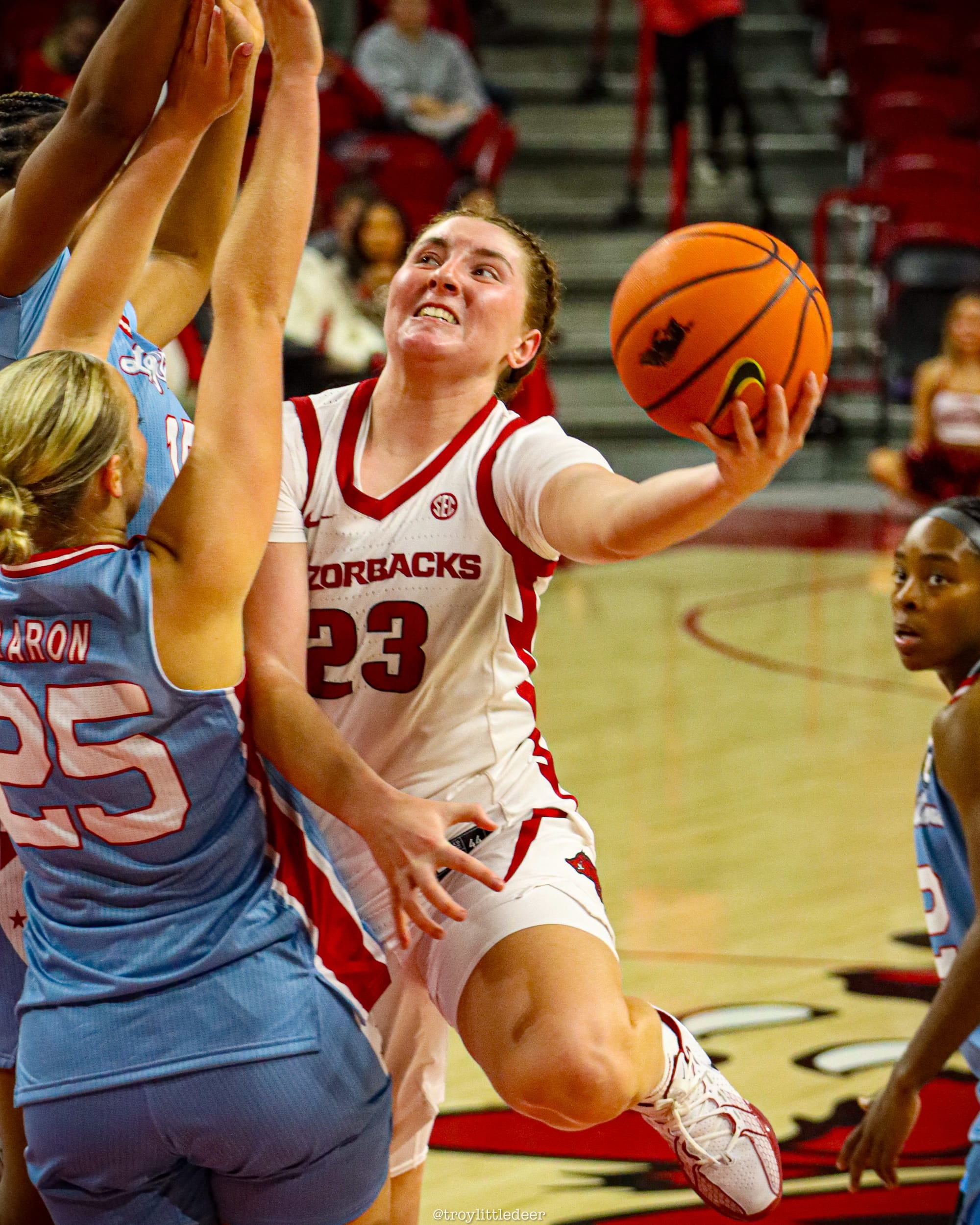
by Troy Littledeer
Fayetteville, Ark - The road between Bokchito and Caddo, Oklahoma, is a fifteen-minute stretch of pavement that connects two towns where everyone knows everyone else. In Caddo, the high school graduating classes rarely break 40 students. The recognition is scarce. The work is quiet.
It is a world away from the lights of Bud Walton Arena.
On Thursday night, Emily Robinson, a daughter of that red dirt and a citizen of the Choctaw Nation, will step onto the floor to lead the Arkansas Razorbacks (4-1) against Little Rock on Native American Heritage Night.
For the junior guard, the game is not just a contest of speed or skill. It is the visible proof of a journey that began in tribal youth tournaments where she had to fight just to be recognized as who she was.
ᴛʜᴇ ‘ᴘʟᴜꜱ ᴏɴᴇ’
Heritage, for Robinson, was never a question of blood; it was a fact of daily life. Her parents work for the Choctaw Nation, her mother in the health clinic and her father in tribal government. Her brother works at the headquarters in Durant.
But in the youth basketball circuit, identity was often judged by a glance.
Robinson grew up playing in all-Indian tournaments where rosters were strictly regulated by citizenship, with the occasional exception for a “plus one,” a non-Indigenous player allowed to fill a spot. With her fair skin and red hair, Robinson was frequently mistaken for the outsider.
“At first, I was a little embarrassed,” Robinson said. “People didn’t think I was Choctaw. I have the card to prove it. … Just because I have red hair and I’m fairly white doesn’t mean that I can’t be part of Native Americans.”
That friction forged a resolve that has carried her into the Southeastern Conference. She learned to embrace the disconnect between how she looked and who she was, finding pride in the truth rather than the perception.“I still get all the benefits,” she said. “I’m very proud to be Choctaw.”
ᴛʜᴇ ʟᴇᴀᴘ ᴏꜰ ꜰᴀɪᴛʜ
Robinson’s path to Division I basketball in Fayetteville was not linear. It required a leap of faith.
After spending two seasons at Oral Roberts University, she faced a crossroads in the spring of 2025 when head coach Kelsi Musick accepted the job at Arkansas. Robinson could have stayed in the comfort of a mid-major program where she was established.
Instead, she chose the discomfort of the unknown.
“I think every little girl’s dream is to play at the highest, biggest division,” Robinson said. “It might be a little uncomfortable at first … but there’s good in uncomfort.”
That willingness to step into the fire has paid immediate dividends. Through five games, Robinson is averaging 11.5 points, becoming a stabilizer for a Razorback team finding its identity. Her grit was on full display against Central Arkansas on Nov. 10, when she buried a game-tying 3-pointer with 12 seconds left to force an overtime victory.
ᴛʜᴇ ʀᴇᴛᴜʀɴ
While the lights of the SEC are bright, Robinson’s vision remains fixed on where she came from.
She speaks of her career with a sense of finality and purpose. She does not dream of the WNBA or overseas contracts. When the ball stops bouncing, she intends to take her degree in sports management and turn her car back toward Durant.
“Basketball has kind of consumed my life,” she said. “That’s an option for me, is to always go back home and work for Choctaw.”
On Thursday against Little Rock, the crowd will see a Division I guard battling for a win. But in the quiet moments between plays, Robinson is playing for something more durable: the small towns that raised her, the nation that claims her, and the red-haired girl in the tribal tournament who knew exactly who she was.



